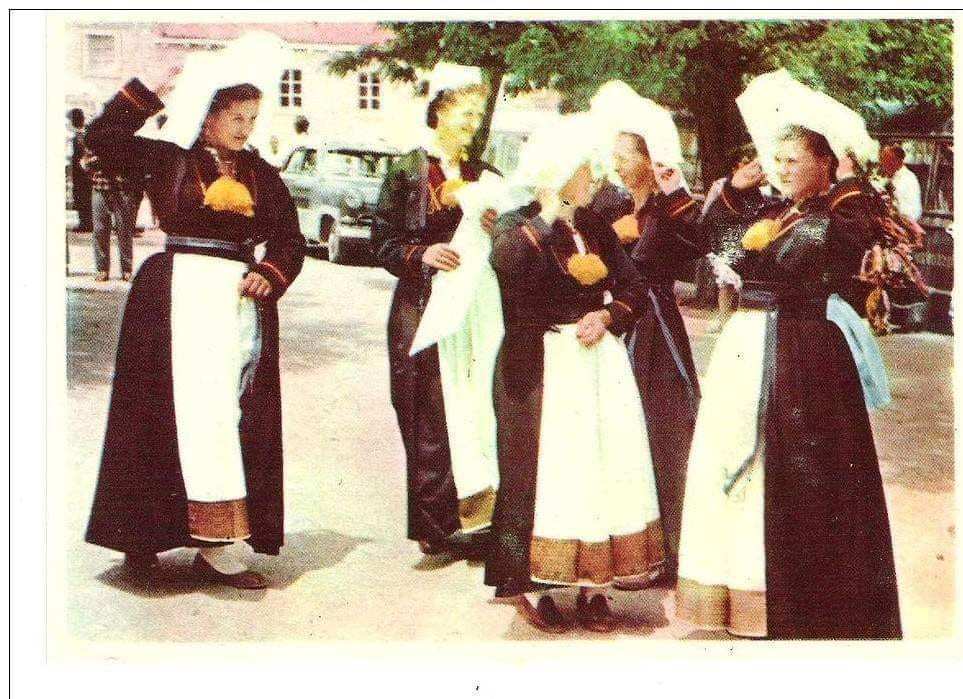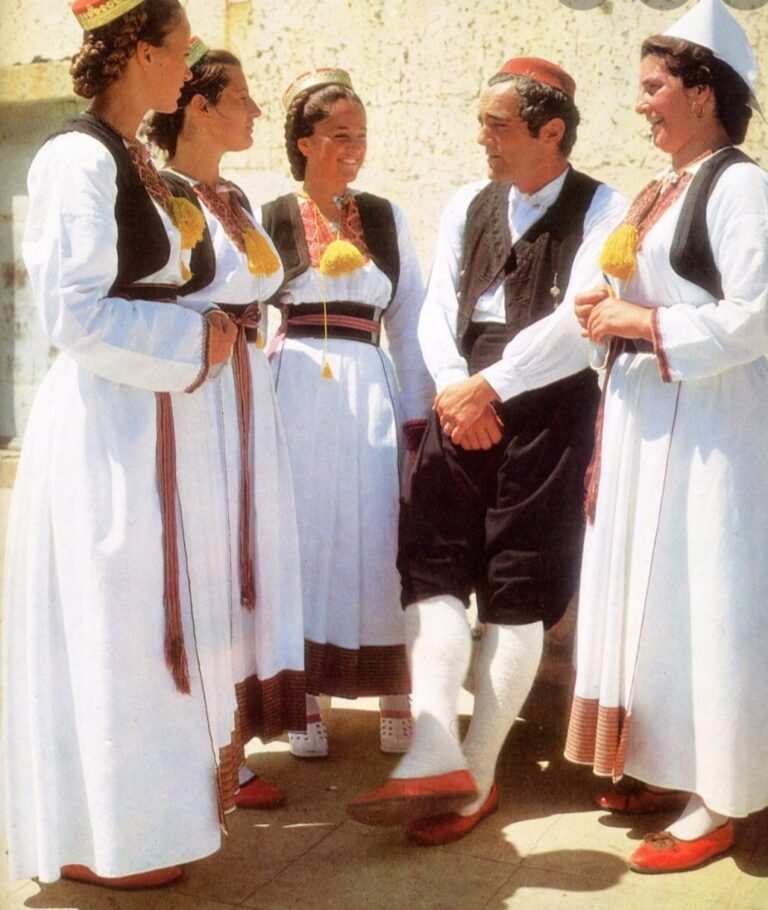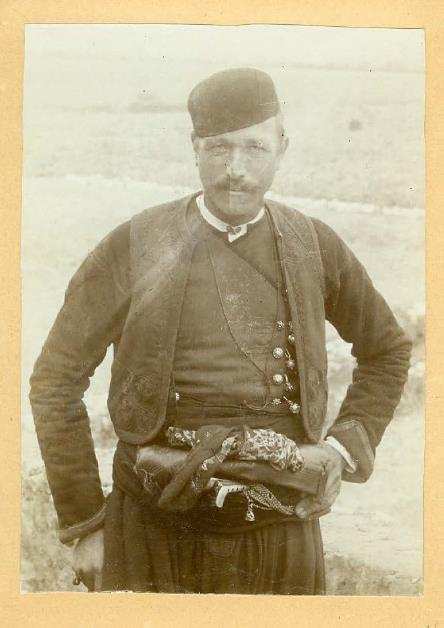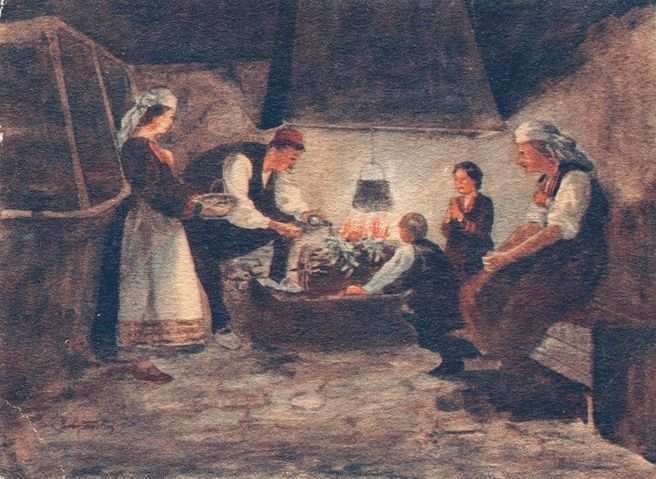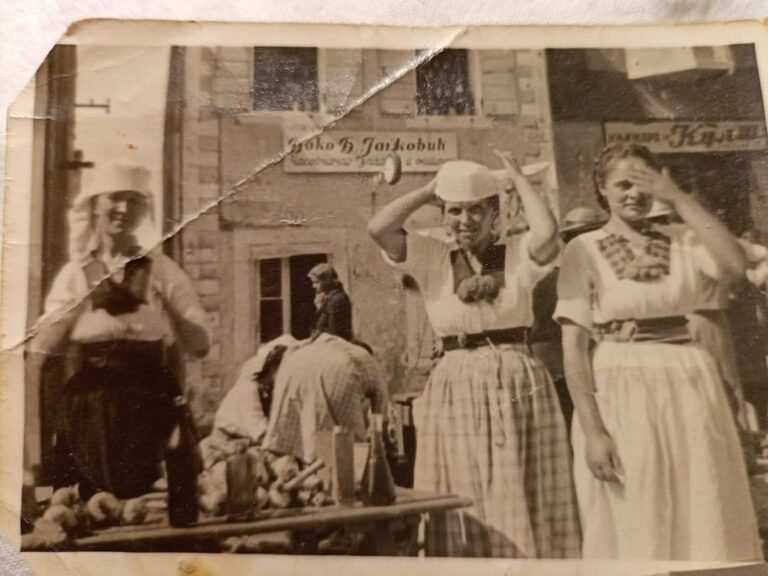One of our previous posts explored the topic of maledictions in Konavle. These short form works of oral literature belong to the field of pragma-semantics, i.e., the emphasis is placed on the semantic content of such utterances, while another notable feature is the speaker’s specific wish for the fulfillment of the curse in question. When referring back to the maledictions in Konavle, as well as curses in general, one is reminded of the immense power of words – words can build up, but also tear down. This post, however, is intended to present benedictions, which symbolise the good that resides in the heart of man, as well as in the language itself.
An interesting aspect of benedictions inherent to the region of Konavle is their omnipresence in everyday speech. It is precisely this fact that made the compiling of these utterances such a difficult task, since a significant number of local residents use them unconsciously. When asked to list the regional maledictions with which they are familiar, all locals will rise to the occasion, while asking them to do the same with the benedictions will most likely stir up confusion and elicit poor answers. However, should one delve a bit deeper into the everyday discourse of the local residents, a plethora of fruitful results will be revealed.
A preliminary point that should be made would be the difference in the desired effect of the two respective types of utterances. On one hand, the desired effect of maledictions is to bring misfortune to the person(s) at whom such remarks are aimed. On the other hand, the intended effect of benedictions is to bestow fortune upon the addressee(s). Benedictions are a sign of kindness, since they are used to wish happiness, love, health and the general prosperity to others.
When discussing typical Konavle benedictions, the first thing that comes to mind is the Konavle wedding toast (konavoska zdravica) – the crowning achievement of the regional oral literature; the very definition of the word zdravica (toast) confirms its status as the most representative regional benediction. Namely, the toast is an expression of good wishes or respect for someone that involves holding up and then drinking from a glass of an alcoholic beverage after a short speech at the beginning of a festive meal. As is the case with the maledictions, the benedictions place emphasis on the belief in the higher power – in this case, in the existence of God. In fact, the very term for a benediction in Croatian (as well as in the local dialect) is blagoslov (‘a blessing’), which underscores the religious connotations of the practice itself. Indeed, in the course of the Konavle wedding toast, the toastmaster repeatedly invokes God, wishing good fortune upon everyone present at the wedding reception: ‘May the sun rise in the east to meet us, and may the good Lord come to our aid and bring us good fortune!…’ to which others respond with ‘Amen, God willing.’ in order to confirm the benediction. In addition, the toastmasters, as well as everyone else gathered at the wedding, offer their blessings: ‘May the good Lord aid the one who has invited us to his home, as well as his harmonious family, the home itself, the host and all his friends both present and absent’; ‘Oh, good Lord, grant this honest host all that he wishes for, and may all his troubles be few’; ‘May the good Lord help us and may this day that we’ve lived to see bring us joy’; ‘And may the Lord Almighty help this young girl that has left one honest home to arrive to another.’
If truth be told, one could basically copy the entirety of the toast if they were to list all the benedictions found therein, but it is also important to mention the ones found in the everyday discourse of the locals, such as the felicitations uttered on holidays (e.g. ‘May the Christmas Eve bring health to you!’; ‘May the Christmas bring health to you!’) and other special occasions (for instance, birthdays and name days): e.g. ‘May St. Nicholas/Luke’s/Martin’s Day bring health to you!’).
The elders were a bit more earnest in their felicitations and blessings, using utterances such as: ‘May the birth of Christ and all the following days bring health to you all’; ‘May God keep you safe when you’re unable to do so yourself, may God give you when you don’t take from others, so that you may give to those in need, for without such gifts a great man becomes little.’; ‘May those who meet you be glad to do so, may those closest to you bestow you with all their love, for when a person gifts with all their love, that is seen by the Lord above.’
The old greetings, which show the creative kindness of Konavle and its people, can still be heard in the everyday conversations, such as the utterances used to bid a person farewell (‘May we both be in good health the next time we meet!’; ‘May the luck sing to you wherever you go!’) and even the benedictions used to express disagreement (‘May God bestow good fortune upon you at another doorstep!’). The most frequent blessings are undoubtedly the ones invoking God: ‘May God give you many children!’; ‘God bless you!’; ‘Good night, may God be at your aid!’; ‘May God compensate you in health!’; ‘May God help you!’; ‘May God grant good health to all of you!’; ‘May God give you a gift from an unexpected source!’; ‘May God be kind to you in all aspects of life!’ or ‘May God be generous to you in all aspects of life!’
Besides the above-mentioned benedictions, there are also those used to directly invoke luck, health and blessings: ‘May good fortune sing to you on flowers!’; ‘May you always remain happy and joyous!’; ‘May everything be available to you and may it all be blessed!’; ‘May good fortune sing to you!’; ‘May everything be music to your ears!’, ‘May you marry without regret!’; ‘May everything that is yours flourish and bring you joy!’; ‘May everything that is yours flourish!’, etc. What is more, benedictions can be found in the types of good wishes regarding various ordinary matters, such as the purchase of a new car (‘May you let her rip in good health!’) or new pieces of clothing (‘May you wear it in good health!’), and even in the humorous ones, e.g. ‘May God be generous even when you’re sitting on a cold stone!’ – the final example refers to the common belief that one should not sit on cold surfaces for fear of contracting diseases such as bladder inflammation. Another instance of the latter type of good wishes is the ‘Konavle Anthem’ – a cheeky free verse poem mocking the stereotypical depictions of all villages in the area, as well as the region itself, based on the habits or manners of their residents: ‘May God deliver you from a Cavtat weaver, the malice of the Konavle people, a fisherman from Molunat, the philosophising of the Čilipi people,…’ and so on.
Da Bog pomože! – ‘May God be at our aid!’ As can be seen from the examples above, only a fraction of the authentic Konavle benedictions has turned this post into a rather long-winded affair, so it may be appropriate to conclude with ‘May God hear our prayers!’, at which point the readers may think ‘Enough is enough, may God grant you the wisdom to shut up!’; if they choose to do so, no offence will be taken on our behalf. Instead, we would like to wish them with all of our hearts: ‘May good fortune enter your doorstep and never find a way out!’
Some of the photos were taken from the Facebook group Konavoski rječnik and Zavazda Konavle.
